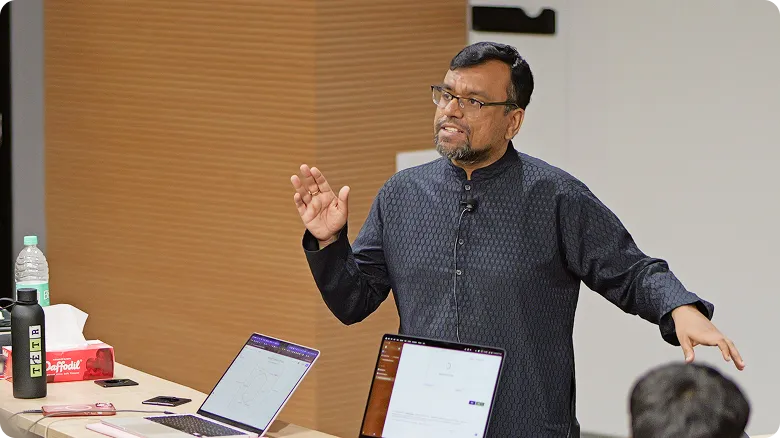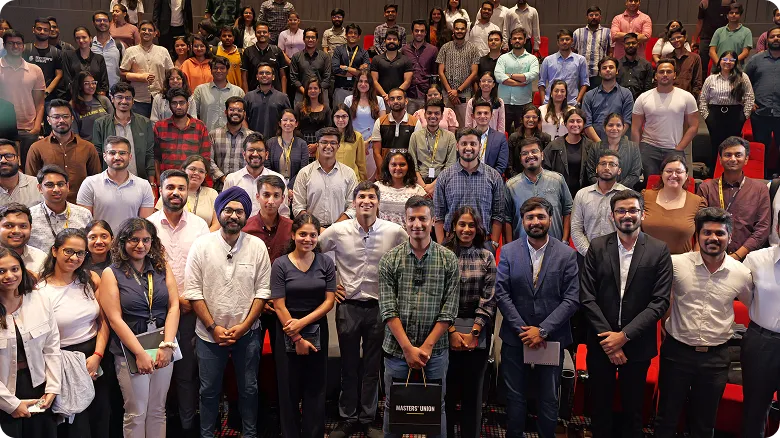Undergraduate
Undergraduate (Global)
Postgraduate
PGP in Technology and Business Management
PGP in Technology & Business Management
(Young Leaders Cohort)
PGP in Human Resources & Organisation Strategy
PGP in Sports Management & Gaming
PGP in Applied AI & Agentic Systems
PGP in UI/UX & Product Design
PGP in Sustainability & Business Management
PGP Bharat
Executive
Family Business
Careers
Innovations
Faculty
MU Ventures
Enterprise Education
Student Life
Jobs
Become a Master
events
For Companies
Blog
Business
Navigating India’s Green Economy: Opportunities for Entrepreneurs in Sustainability
March 4, 2025

As the world shifts towards sustainable development, India is emerging as a key player in the green economy. With increasing government initiatives, corporate commitments to sustainability, and rising consumer awareness, entrepreneurs have a wealth of opportunities to build businesses that align profitability with environmental responsibility. At Masters’ Union, we empower future leaders to capitalise on these opportunities through real-world insights and hands-on learning.
Opportunities in India’s green economy
-
Renewable energy and clean tech: India’s commitment to achieving net-zero emissions by 2070 has accelerated investment in renewable energy. Solar, wind, and bioenergy sectors present lucrative business opportunities, from manufacturing solar panels to developing energy-efficient solutions for industries. Entrepreneurs can also explore electric mobility, battery recycling, and smart grids.
-
Sustainable consumer goods and packaging: With the government banning single-use plastics, there is a rising demand for eco-friendly alternatives. Businesses focusing on biodegradable packaging, sustainable fashion, and organic personal care products can capture a growing market of environmentally conscious consumers.
-
Green finance and esg consulting: As companies integrate Environmental, Social, and Governance (ESG) principles into their strategies, startups offering ESG consulting, carbon footprint assessments, and green financing solutions have a significant edge. Impact investing and green bonds are also gaining traction, providing fresh avenues for financial innovation.
-
Waste management and circular economy: Waste management remains a critical challenge in India. Startups leveraging AI, IoT, and blockchain for efficient waste segregation, recycling, and upcycling are poised for growth. The circular economy model—where products are designed to be reused and regenerated—offers immense potential for innovation in various sectors.
Challenges in the green economy
-
High initial investment and infrastructure gaps: Green startups often require significant upfront capital for R&D, production, and infrastructure. While government subsidies exist, accessing funding and scaling operations remain key hurdles.
-
Regulatory complexity: Sustainability laws in India are evolving, and navigating policies related to carbon credits, green certifications, and waste management regulations can be challenging for new businesses.
-
Consumer awareness and market adoption: While awareness is growing, many consumers and businesses are yet to fully transition to sustainable alternatives. Entrepreneurs must focus on education, affordability, and convenience to drive widespread adoption.
Masters’ Union’s perspective
At Masters’ Union, we believe sustainability is not just a trend but the future of business. Through industry immersion, real-world case studies, and mentorship from leading entrepreneurs, our students gain hands-on experience in building sustainable ventures. By equipping them with the skills to navigate India’s green economy, we prepare them to lead impactful and profitable businesses.
India’s green economy is at a transformative juncture, presenting immense opportunities for entrepreneurs who can blend innovation with sustainability. Those who embrace green technology, ethical business practices, and strategic adaptation will be at the forefront of this revolution. At Masters’ Union, we nurture business leaders who will drive this change and build the sustainable enterprises of tomorrow.

















